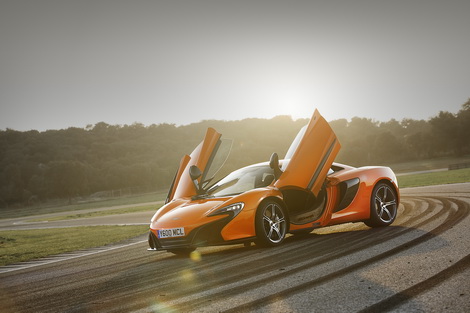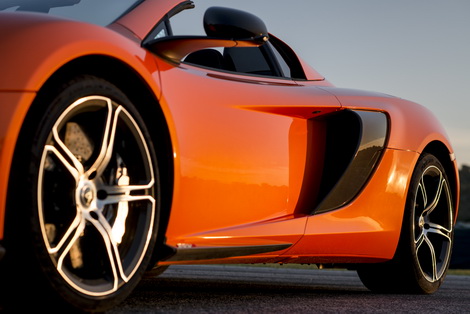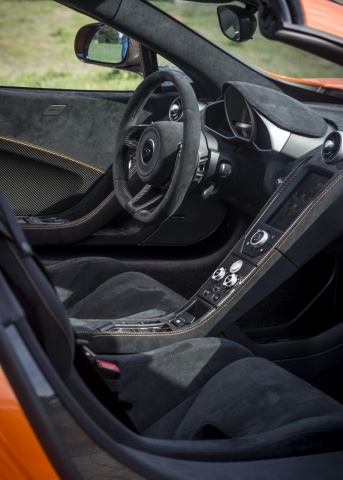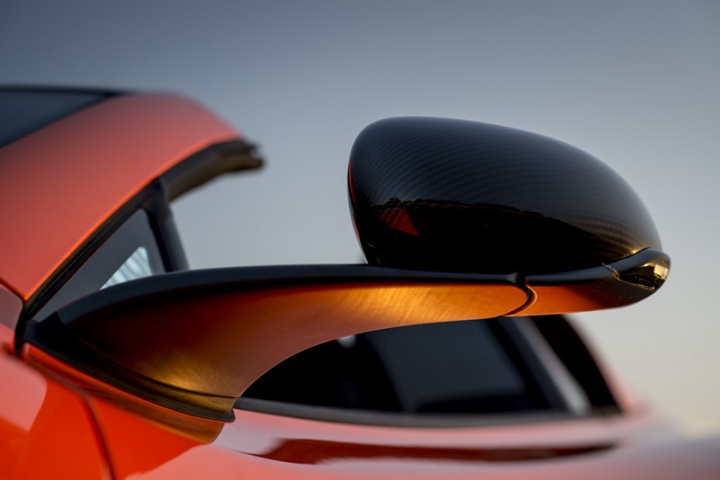When: March 2014
Where: Ronda, Spain
What: McLaren 650S
Occasion: International first drive
Overall rating: 4.5/5
McLaren's 12C has been further developed to become the 650S, the company's all-rounder gaining even more capability and sharper looks in the process. Junior McLaren P1 anyone?

Key Facts
Model tested: McLaren 650S
Pricing: well over €300,000
Engine: 3.8-litre turbocharged V8 petrol
Transmission: rear-wheel drive, seven-speed SSG (dual-clutch automatic)
Body style: two-door coupé or Spider
Rivals: Ferrari 458 Italia, Lamborghini Huracan, Porsche 911 Turbo S
CO2 emissions: 275g/km (Band G, €2,350 per annum)
Combined economy: 24.2mpg
Top speed: 333km/h
0-100km/h: 3.0 seconds
Power: 650hp at 7,500rpm
Torque: 678Nm at 6,000rpm
In the Metal: 4/5

Complaints that the 12C looked a bit generic and ordinary clearly resonated at McLaren, as the 650S presents a new face to the world. It's familial link with the P1 hypercar is obvious and deliberate, the headlights describing McLaren's corporate logo, which itself is replaced on the bonnet with a simple McLaren scripted badge for less identity ambiguity among the less well informed. It's certainly more dramatic looking; the 650S's face is far less reserved than its 12C relation's. Around the sides new wheels feature, while larger side intakes feed more cooling air into the engine and lower door blades (badged 650S) clean up airflow around the flanks. The rear remains largely unchanged, with only minor styling revisions, though you'll need to tick a lot of very expensive option boxes if you want your 650S's new bits in carbon fibre.
The interior is improved too, though again there's the possibility to upgrade extensively and expensively with plentiful leather, seat, Alcantara and carbon fibre trim options. The basics are correct though, the seating position good, the instruments clear and visibility decent - for a mid-engined supercar. What remains a frustration is the satnav's inability to locate you correctly on a road, the arrow often firing off line and being slow to react at junctions - despite McLaren's assurances it has worked on the system.
Driving it: 4.5/5
With its 650hp power output now in excess of the McLaren F1's the 650S is able to out-accelerate its legendary ancestor to 100km/h and 200km/h, at 3.0- and 8.4 seconds respectively. That it can do so with such ease is remarkable, the 650S losing none of the 12C's civility in transformation into a faster, more involving car. To achieve that McLaren has extensively tweaked the 650S's specification, every area having been reworked or re-calibrated to improve performance, precision, feel and control and it's difficult to argue against what McLaren has achieved.
Mighty as it is, it's not the performance that's the truly remarkable facet of the 650S's make-up. Instead it's the civility of the ride. Borrowing damper technology from the P1, and revised suspension mountings, the 650S's ProActive Chassis Control (PCC) system allows the 650S a ride quality in its Normal setting that's remarkably supple and composed. Selecting Sport does little to decrease the ride comfort yet improves the control, the steering too benefitting from the suspension changes with greater feel, precision and weight - regardless of the setting. Ripples, bumps and tortured tarmac do little to upset the 650S's composure, removing that wincing approach and uncomfortable intrusion you'd experience in its competitors. Roll and body control remain exceptional despite this, allowing you to enjoy the 650S over a wider range of conditions than you would its rivals.
On track the 650S's greater potency and poise are tangible - so too are the greater thresholds of the ESP stability control system, which allows the car to move around under you more before gently intervening. The gearchanges are quicker too, their shifts aided in Track mode during upshifts by 'inertia push', which utilises engine torque to raise the engine speed to avoid drops in acceleration during shifts. The engine remains immensely tractable, yet is savagely quick in its upper rev ranges, where the aural experience improves markedly too - this is even more obvious in the Spider if you drop the rear window.
The brakes, now carbon ceramic discs as standard, offer fantastic pedal feel and no drop off in performance even during hard track use. The 650S's airbrake gains some additional 'intelligence', it deploying not just when braking hard, but when it deems additional downforce is necessary, like when cresting a hill. The combined result of McLaren's changes aren't just apparent on the track, but the road too, the 650S feeling even more capable than ever. There's more rearward bias in the handling as a result of the changes, the nose less prone to understeer thanks to a combination of the suspension and aerodynamic changes. That re-calibration of the ESP also gives more freedom, yet even when that's disabled the 650S remains a car that's friendly at and above its high limits.
That it achieves all this yet retains - and actually improves on - the MC12's roundedness is a triumph, and for those buyers who actually use their supercars daily there's little, if anything out there that can match it.
What you get for your Money: 3/5
It's expected at this point in the marketplace you'll pay handsomely for not just the car, but the opportunity to personalise it and the 650S is no exception. As standard you'll pay well in excess of €300,000 to import a 650S into Ireland, but if you want all the carbon trim, the excellent fixed back carbon fibre seats, various choices of interior leathers and other finishes inside then bank on spending at least €75,000 more.
Worth Noting
The 650S loses weight over its 12C relation, though the obsessive can choose their specification to remove 29kg more. Do so and the dry weight drops to 1,301kg. Play the specification game and it's possible to mitigate the additional weight that some luxuries add - the 7kg that the optional electrically adjusted steering column adds can be cancelled out by choosing the carbon fibre seats, for instance, which remove around 15kg.
Summary
The morphing of the 12C into the 650S (McLaren is officially saying that the 12C remains on sale at a lower price than the new car) transforms its supercar proposition into an even more convincing package, though one that still comes with provisos. It might lack some of the overt emotion of its key Italian rival, its roundedness and usability more relative to Porsche's 911 Turbo S, yet it's a deeply impressive, phenomenally able and forgiving supercar. Engaging too, far more so than its 12C relation.


